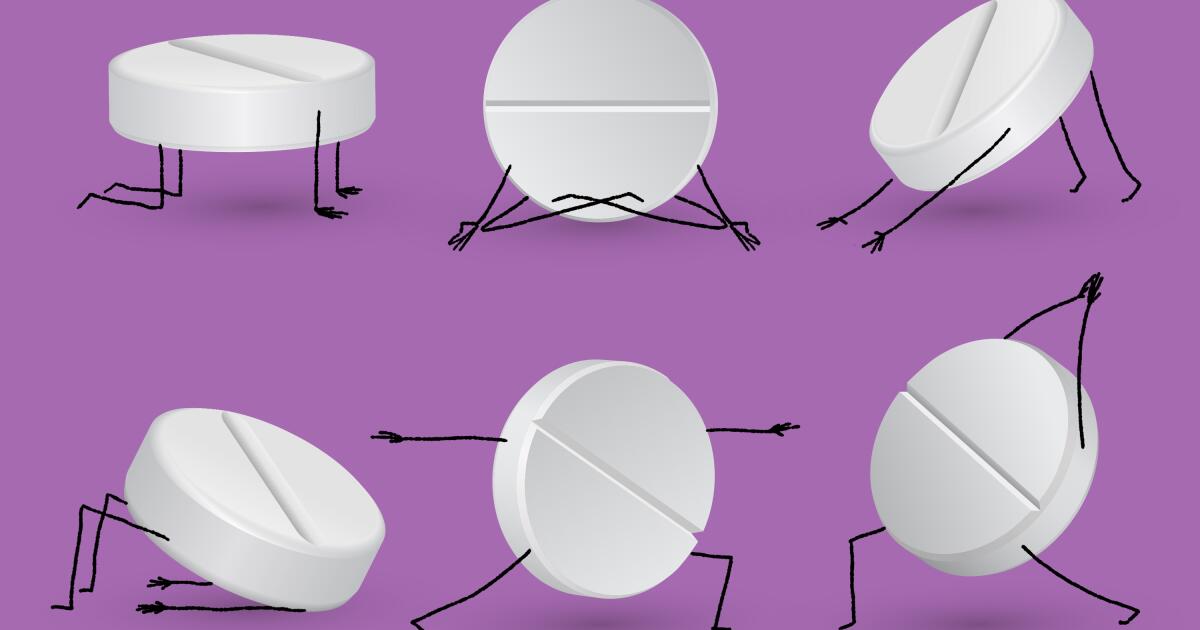Essential California
Could a ‘Yoga Pill’ Provide Calmness in the Middle of an Anxiety Attack?
That first moment of panic varies for anxiety attack sufferers. Your heart starts pounding, or your chest seems to tighten and breathing become difficult. Or, perhaps, it’s the onset of a headache or a loss of focus.
The situation is made worse when a person is in a public place — a supermarket, a sporting event, or at work. Taking a deep breath, lying down, or closing your eyes may not be an option.
But what if in the midst of this personal chaos there was a pill that provided the benefits of breathing and instant relaxation that could soothe such an attack?
Scientists May Have Discovered a Pathway to Such a Solution
My colleague Deborah Vankin chronicled the groundbreaking scientific research performed by neuroscientists at the Salk Institute for Biological Studies in La Jolla. They have identified a brain pathway that instantly deflates anxiety. The new study was published in the scientific journal Nature Neuroscience.
The discovery opens up the potential for the creation of new drugs that would mimic the relaxed state common during breath work, meditation, or yoga, according to Sung Han, senior author of the study.
The Discovery Helps Explain What We Don’t Know About Calmness
We’ve long known we can control our breathing patterns to alter our state of mind — when we get stressed, we might take a deep, slow breath to feel calmer. Scientists, however, didn’t understand how that worked — which parts of the brain were actually slowing our breath and why that activity makes us calmer.
Now they know that there is a group of cells in the cortex, the higher part of the brain responsible for more conscious, complex thought, that send messages to the brain stem, which in turn sends information to the lungs. That’s the aforementioned "circuit."
The Practical Applications from the Discovery
The discovery helps explain what we don’t know about calmness. It can, potentially, create a whole new class of drugs that can more specifically target anxiety disorder, Han says.
Common anti-anxiety drugs like Xanax and Lexapro target multiple areas of the brain that control brain processes and behaviors. It’s why these drugs don’t work for everyone in the same way and may create unwanted side effects. More precisely targeting an individual brain circuit makes a medication more effective and reduces potential side effects.
Conclusion
The discovery of the "yoga pill" is a significant breakthrough in understanding the mechanisms of anxiety and relaxation. While it may take years to develop a pill that can mimic the effects of breath work, meditation, or yoga, the potential benefits are enormous.
The Week’s Biggest Stories
- Crime, courts, and policing
- Environmental and wildlife issues
- Solar power and electrical charging
- Strange deaths and near deaths
- More big stories
Get Unlimited Access to the Los Angeles Times
Subscribe here.
Column One
Column One is The Times’ home for narrative and longform journalism. Here’s a great piece from this week:
For Your Weekend
- Going out
- Staying in
L.A. Affairs
Get wrapped up in tantalizing stories about dating, relationships, and marriage.
Conclusion
Have a great weekend, from the Essential California team.
FAQs
Q: What is the "yoga pill"?
A: The "yoga pill" is a potential new drug that could mimic the relaxed state common during breath work, meditation, or yoga.
Q: How does it work?
A: The pill would target a specific brain circuit that regulates voluntary breathing, allowing for instant relaxation and calmness.
Q: When can we expect to see the "yoga pill" on the market?
A: It may take up to 10 years for the research to be completed and the pill to be developed and approved for use.


